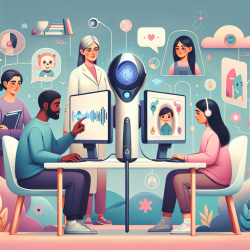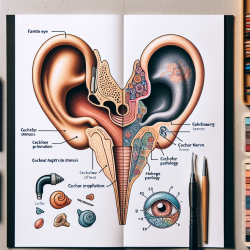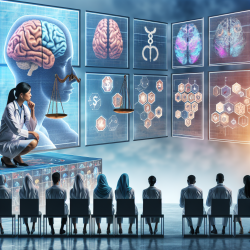Introduction
In the rapidly evolving field of immuno-oncology, the integration of artificial intelligence (AI) and machine learning (ML) is not just a trend—it's a revolution. The research article "Just how transformative will AI/ML be for immuno-oncology?" explores the profound impact these technologies are having on clinical workflows, data curation, knowledge extraction, and overcoming cohort size limitations in immunotherapeutic evaluations. For practitioners, understanding these advancements is crucial for improving patient outcomes and staying at the forefront of medical innovation.
Efficiency in Clinical Workflows
AI/ML technologies are poised to enhance clinical efficiency significantly. By automating documentation and improving accuracy, AI/ML can reduce physician burden and enhance patient care. For instance, AI-powered medical scribes can streamline administrative tasks, allowing practitioners to focus more on patient interaction and care.
Moreover, AI/ML can boost patient engagement and adherence to treatment through interactive chatbots and mobile applications. These tools provide patients with greater access to their health information, fostering a more informed and engaged patient population.
Curation of High-Quality Image Data
Digital pathology is another area where AI/ML is making significant strides. The automation of tissue slide analysis and the use of multiplex imaging technologies enable detailed characterization of the tumor microenvironment. These advancements not only improve diagnostic accuracy but also facilitate the discovery of new biomarkers, enhancing personalized treatment strategies.
Finding, Extracting, and Synthesizing Knowledge
The vast amount of data available in electronic health records (EHRs) can be overwhelming. AI/ML models, particularly large language models (LLMs) like GPT, are revolutionizing how practitioners access and synthesize this information. These models can rapidly summarize and extract relevant data, aiding in clinical decision-making and research.
However, practitioners must remain vigilant about the accuracy of AI-generated content. Ensuring that AI/ML tools are rigorously validated and integrated into clinical workflows is essential for maintaining high standards of care.
Addressing Small Cohort Size in Immunotherapeutic Evaluations
One of the significant challenges in immuno-oncology is the small and heterogeneous nature of clinical cohorts. AI/ML offers solutions through techniques like transfer learning, which leverages large, pre-trained models to enhance the analysis of smaller datasets. This approach can lead to more robust biomarker discovery and personalized treatment strategies.
Future Directions and Practitioner Takeaways
The future of AI/ML in immuno-oncology is bright, with potential applications extending into reinforcement learning and federated learning. These technologies promise to further refine treatment strategies and enhance collaborative research efforts across institutions.
For practitioners, staying informed about these advancements and actively participating in ongoing research and training is crucial. Embracing AI/ML tools can lead to improved patient outcomes and more efficient clinical practices.
To delve deeper into the transformative potential of AI/ML in immuno-oncology, I encourage you to read the original research paper: Just how transformative will AI/ML be for immuno-oncology?










